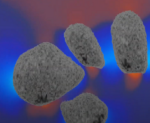Aug. 17, 2023 — The U.S. Department of Energy (DOE) announced $16 million in funding for research projects in particle accelerator science and technology. Total funding is for projects up to three years in duration, with $8.4 million in Fiscal Year 2023 dollars and outyear funding contingent on congressional appropriations. The list of projects and […]
DOE Announces $70M in Research Training for Students and Faculty from Historically Underrepresented Institutions
Aug. 21, 2023 — The U.S. Department of Energy (DOE) announced $70 million in funding to support research by historically underrepresented groups in science, technology, engineering, and mathematics (STEM) and to diversify leadership in the physical sciences. The funding, through DOE’s Reaching a New Energy Sciences Workforce (RENEW) initiative, will support internships, training programs, and […]
DOE Announces $11M Awarded for Extreme-Scale Science
Aug. 10, 2023 — Today, the U.S. Department of Energy (DOE) announced $11 million in funding for 15 projects in exploratory research for extreme-scale science intended to leverage emerging trends and advances in high-end computing, massive datasets, scientific machine learning, artificial intelligence, and novel computing architectures, including quantum computing. Total funding is $11 million for […]
DOE Announces $4.7M for Research on Integrative Computational Tools for Systems Biology Research
Aug. 7, 2023 — Today, the U.S. Department of Energy (DOE) announced $4.7 million in funding for five new research projects in computational biology. These projects will develop new software and analytical tools to manage the growing quantities of genomics and other data stemming from the study of microbes and other biological systems. The projects were selected […]
DOE Announces $13.1M for Environmental Systems Science
July 31, 2023 — Today, the U.S. Department of Energy (DOE) announced $13.1 million in funding for 17 new projects to universities, academic institutions, federal research labs, and nonprofits, within the area of Environmental System Science (ESS) research. Awards focus on measurements, experiments, field data, modeling, and synthesis to provide improved understanding and representation of […]
DOE Awards $11.7M for Research on Quantum Computing
July 27, 2023 — Today, the U.S. Department of Energy (DOE) announced $11.7 million in funding for six collaborative projects intended to improve understanding of whether, when, and how quantum computing might advance the frontiers of computational science, the agency said. Total funding is $12 million for projects lasting up to four years in duration, […]
DOE’s HPC4EI Awards $3.9M for to 13 Clean Energy Projects; Announces Upcoming RFI Solicitation
WASHINGTON, D.C. –The U.S. Department of Energy (DOE) announced a $3.9 million federal investment for 13 projects that will tap into the DOE national laboratories’ HPC resources to connect with industry partners. These short-term, collaborative projects will address manufacturing challenges and are intended to accelerate development of clean energy technologies. Boeing, Ford Motor and General […]
Intel Announces Installation of Aurora Blades Is Complete, Expects System to be First to Achieve 2 ExaFLOPS
Intel today announced the Aurora exascale-class supercomputer at Argonne National Laboratory is now fully equipped with 10,624 compute blades. Putting a stake in the ground, Intel said in its announcement that “later this year, Aurora is expected to be the world’s first supercomputer to achieve a theoretical peak performance of more than 2 exaflops … […]
ASCR: Exascale to Burst Bubbles that Block Carbon Capture
Bubbles could block a promising technology that would separate carbon dioxide from industrial emissions, capturing the greenhouse gas before it contributes to climate change. A team of researchers with backing from the Department of Energy’s Exascale Computing Project (ECP) is out to burst the barrier, using a code that captures the floating blisters and provides insights to deter them. Chemical looping reactors (CLRs) combine fuels such as methane with oxygen from metal oxide particles before combustion. The reaction produces water vapor and carbon dioxide, which can easily be separated to create a pure CO2 stream for sequestration or industrial use. Standard post-combustion separation must pull carbon dioxide from a multigas mixture.







